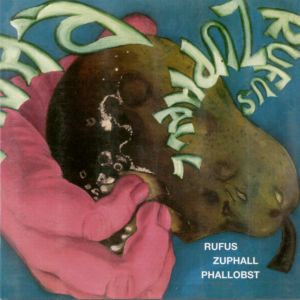
- Format: MP3

The Band was brought to the attention of the Ohr label by a radio broadcast, a two year contract was made and a second LP - Phallobst - was planned for 1971. Helmut Lieblang left the band shortly before the production for personal reasons, but continued to write lyrics He was replaced by Manfred Spangenberg. At the same time an additional guitarist - Thomas Kittel - joined the band. "Portland Town" on forthcoming CD "Avalon And On"(LHC031) was a demo track for the new record company, recorded by the new line-up.
Phallobst appeared at the end of 1971 not as announced on Ohr but on the new BASF sublabel Pilz (a long deleted reissue came out in the mid eighties). In July the LP was recorded in less than a week in Dieter Dierks studios near Köln on rather unpleasant conditions. The musicians felt themselves under pressure of time, the studio was being rebuilt and Krause was irritated - he had been taken aside behind the group's back and a solo career as the "German Neil Young" had been suggested to him. The production management and the band had their differences regarding the track "I'm On My Way", that then appeared on the record in a form that had been rejected by the band - still an open wound. Despite the estrangement - musically and otherwise - with the producers, Udo Dahmen expressed himself diplomatically in an interview about the studio work, "the group is", he said, "basically satisfied with the result".
With the additional second guitarist, Rufus Zuphall became more versatile - in Dierks' studio a Mellotron was available, other key instruments were also used, it could clearly be heard that an effort was being made to attain a more complex and expansive instrumental sound that was also more compact. The playful superficial elements from the time of the first LP were pushed into the background. In louder parts Rufus Zuphall were much heavier, in quieter ones they'd become more lyrical and the construction of the songs, despite alternating pace, straighter.
The press reaction to the album was positive and paid particular attention to the further development of the band since "Weiß der Teufel" (LHC 029). On TV Rufus Zuphall was presented in the SWF programme "Talentschuppen" in great detail, this normally a springboard in the career of young artists in Germany. However, the disputes with the record company continued. They couldn't agree on a single, neither the traditional "900 Miles" nor the track "Waste Land" were lent an ear of one accord. The suggestion of the record company - of letting Dierks rearrange it - was not acceptable to the band. Ohr management was annoyed. On the other hand, in Aachen they weren't happy with the standard of marketing: there was a memorable letter from BASF (one wonders why "Fallobst" isn't in the record shops) and an even more memorable answer from the band: what can you expect from a firm that can't even spell its product correctly…